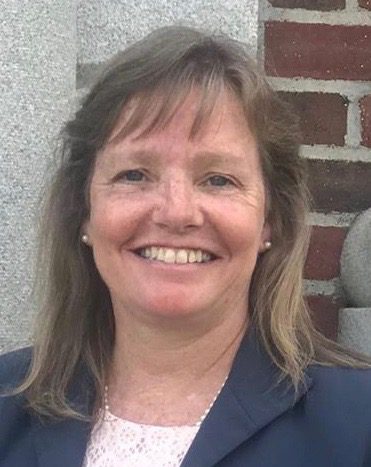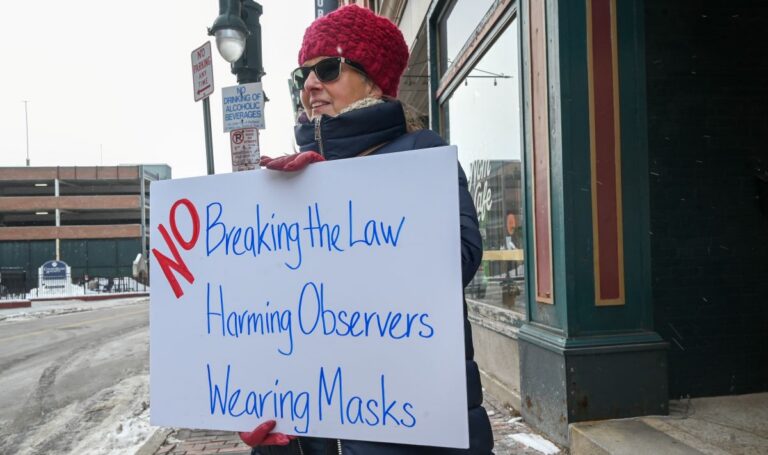Across Maine’s 16 counties, eight district attorneys are entrusted to prosecute all criminal cases — except murders — that occur in their region.
Maine’s DAs represent one of eight Unified Criminal Dockets around the state. The UCD merges the criminal dockets from the state’s superior and district courts.
Maine’s district attorneys, who each serve a four-year term, wield tremendous power by determining how cases in their UCD are handled.
“(We) dictate policy and give direction on how cases are prosecuted and how recommendations are made for sentencing,” said Jonathan Sahrbeck, the Cumberland County district attorney.
Each DA belongs to the Maine Prosecutors’ Association, which meets monthly to discuss civil and criminal concerns but doesn’t set policies.
There are 97 assistant district attorneys (ADAs) in the state working alongside the eight DAs. Cumberland County has the highest number of ADAs with 22, while Aroostook County has the lowest with six, according to Kyle Hadyniak, the director of communications for Maine’s Department of Administrative and Financial Services.
Hadyniak said salaries for DAs and ADAs are funded directly from the Office of the Attorney General. Any non-salary costs are covered by the counties.
Depending on where you live and on the district attorney, the way criminal cases are handled will vary. Bail, for instance, can be lower in one region than another for the same crime, said Matthew Foster, a district attorney who oversees Hancock and Washington counties.
Maine’s district attorneys also handle some of the highest caseloads in the nation, according to Kennebec County DA Maeghan Maloney. “Per prosecutor, our caseloads are extraordinary,” she said.
The Office of the Attorney General states on its website that in 2010, the eight DAs and 76 ADAs in Maine handled 62,188 adult criminal cases and 3,662 juvenile prosecutions – an average of 844 cases per prosecutor annually.
That number is three times higher than the recommended caseload of the American Bar Association. The ABA says prosecutors should handle no more than 400 misdemeanors, 100 felonies, 150 juvenile cases or 25 appeals in a year.
“The prosecutors in our office handle well over 600 cases a year, and that’s a mixture of misdemeanors and felonies,” Maloney said.
Chief Justice Leigh Saufley recognizes there’s a lack of people working in the DA offices to cover the high caseloads. She also said a lack of judges in the state has put a strain on the DAs.
“We’re all working on that,” said Saufley. “These gaps in resources tend to go in waves, and all of us identify this as a particularly difficult time.”
Sahrbeck says district attorneys also play a vital role as a “public safety officer within the county.” He said that includes educating the community, advocating for victims and helping prevent people from returning to the criminal justice system.
“If we can achieve all of those, the public will be safer since we’ll have less people coming into the criminal justice system,” Sahrbeck said.
MEET MAINE’S DISTRICT ATTORNEYS
How do Maine’s prosecutors view the state’s criminal justice system? The Maine Monitor spoke with seven of the state’s district attorneys (District 7 DA Matthew Foster did not respond to repeated interview requests). Here are their responses:

DISTRICT 1: KATHRYN SLATTERY (Democrat)
Counties served as DA: York
Law School: University of Maine School of Law, 1982
The Maine Monitor: What has been your primary focus in your time as District Attorney?

Slattery: I have always considered public safety as my No. 1 concern. That being said, I view protecting public safety as a broad concept that encompasses effective sentences, which encourages rehabilitation in addition to appropriate punishments for individuals committing the most serious crimes. I have always asked: What caused this behavior and how do we keep it from repeating? I have particularly focused on domestic violence prosecution.
The Maine Monitor: In what ways would you like to see the court system in Maine improve?
Slattery: The Maine court system suffers from a significant lack of resources. With appropriate resources, the courts could be more innovative and flexible.
The Maine Monitor: What does it already do well?
Slattery: With the specialty courts developed in parts of the state — drug court in each district, co-occurring disorders and veterans courts in a few locations — they make a great effort to deal with the most difficult participants in the criminal justice system.
The Maine Monitor: Does Maine’s court system provide fair and consistent justice for defendants across the state?
Slattery: I can only speak for York County, where there is a constant effort to do so.
The Maine Monitor: What do you want your community to know about you and the work you do?
Slattery: The District Attorney’s office deals with some of the most serious issues facing our communities. On a daily basis, my assistants make decisions that affect the lives and safety of our citizens. They are incredibly hard-working and take quite seriously their roles as “ministers of justice.” As DA, I strive to approach each case, each defendant and each victim individually. It is very easy to be rigid and inflexible. It takes a lot more energy and thought to practice individualized justice — which is what my office does.
I have been very supportive of treatment for individuals whose criminal behavior is linked to — or a result — of substance use disorder, and continue to work with and support the Layman Way Recovery Center. This treatment center is specifically available only to individuals who would otherwise be incarcerated pending resolution of their criminal cases.
I also consider it important to be involved in the development of police standards, which I do through my seat on the board of trustees of the criminal justice academy. I consider it equally as important to be involved in developments in criminal law and criminal justice, which I do as a member of the Criminal Law Advisory Commission.
I feel it is my responsibility to continually seek more and different ways to deal with individuals within the criminal justice system, and to assist in expanding the tools. However, I also consider it very important to make sure that the rights of victims of crime are addressed as well.
We are now seeing more people within the criminal justice system for whom there is no appropriate response. I am particularly interested in developing more resources to deal with individuals who present significant mental health issues but who are also involved in criminal behavior.
The criminal justice system is very complex. I have spent most of my career as a prosecutor and I have seen many, many changes. What has never changed, however, is that at its base, we are dealing with individual behaviors and the individual impacts upon victims. I have always and will continue to be guided by principles of integrity and justice when it comes to resolving any case.
DISTRICT 2: JONATHAN SAHRBECK (Independent)
Counties served as DA: Cumberland
Law school: American University Washington College of Law, 2005
The Maine Monitor: What has been your primary focus in your time as District Attorney?

Sahrbeck: My primary focus has been community engagement to increase prevention efforts for substance use disorder and address mental health issues. One thing that goes along with that focus is increased diversionary efforts as opposed to jail, since it will increase public safety in the long term by reducing recidivism.
The Maine Monitor: In what ways would you like to see the court system in Maine improve?
Sahrbeck: I think we need more treatment resources available through the criminal justice system. We need to be able to connect people involved in the criminal justice system with the necessary help that they need.
The Maine Monitor: What does it already do well?
Sahrbeck: Maine is one of the safest states in the country. I think one of the reasons for that is because we have dedicated, professional and compassionate prosecutors, law enforcement officers, judges, and defense attorneys who strike an effective balance between public safety and protecting individual rights.
The Maine Monitor: Does Maine’s court system provide fair and consistent justice for defendants across the state?
Sahrbeck: That is a very difficult question to answer for me because I’ve only worked as a prosecutor in Cumberland County and in York County. From what I’ve seen in those two locations, I believe prosecutors, police and the court system treat defendants fairly and in the interests of justice.
The Maine Monitor: What do you want your community to know about you and the work you do?
Sahrbeck: I would like the community to know that the District Attorney’s office will always be focused on public safety, law enforcement, representing victims in the criminal justice system and striving for justice for all individuals. Without compromising public safety, our interest is not to simply put people in jail, but rather to find effective solutions so that individuals who come into the criminal justice system don’t return once their case is over.
DISTRICT 3: ANDREW ROBINSON (Democrat)
Counties served as DA: Androscoggin, Franklin and Oxford
Law school: University of Maine School of Law, 1997
The Maine Monitor: What has been your primary focus in your time as District Attorney?

Robinson: My primary focus is to maximize the limited resources we have available to us to ensure that the criminal justice system provides a fair and just result for the victims, defendants and the community.
The Maine Monitor: In what ways would you like to see the court system in Maine improve?
Robinson: The criminal justice system is in desperate need of more resources. I cannot speak directly to the needs of the court and defense counsel, but I am very familiar with the lack of appropriate resources for prosecutors and the impact it has on our cases. Across the state of Maine, each prosecutor carries a caseload that far exceeds the maximum amount any prosecutor should be required to oversee by any objective standard. The result is that each prosecutor is constantly trying to keep up with cases, and fulfill constitutional, statutory and ethical obligations. It often leaves us performing a triage type analysis to determine where we should focus our resources, which is incredibly stressful when you know you are charged with ensuring justice for all cases.
The Maine Monitor: What does it do well?
Robinson: The criminal justice system is comprised of very intelligent, hard-working individuals who care about their work and strive to ensure people are treated fairly and that justice is done.
The Maine Monitor: Does Maine’s court system provide fair and consistent justice for defendants across the state?
Robinson: Yes.
The Maine Monitor: What do you want your community to know about you and the work you do?
Robinson: As a prosecutor, I know that my responsibility in the courtroom is to ensure that justice is accomplished. I have modeled my career after the words of the Attorney General of the United States, Robert H. Jackson, during a speech he gave in 1940: “A sensitiveness to fair play and sportsmanship is perhaps the best protection against the abuse of power, and the citizen’s safety lies in the prosecutor who tempers zeal with human kindness, who seeks truth and not victims, who serves the law and not factional purposes, and who approaches his task with humility.”
I work hard to make sure everyone who comes through the courthouse doors is treated fairly and with respect. When the conduct of a defendant is particularly heinous or creates a public safety risk, my office has pursued significant sentences that were appropriate and necessary. When justice requires the state to recommend leniency, I have proposed alternative dispositions regardless of public opinion or other pressures. The work is noble and I am proud of what we have accomplished during my tenure as district attorney for District 3.
DISTRICT 4: MAEGHAN MALONEY (Democrat)
Counties served as DA: Kennebec and Somerset
Law school: Harvard Law School, 1997
The Maine Monitor: What has been your primary focus in your time as district attorney?

Maloney: My focus is to be smart on crime: When possible, use rehabilitation that’s less expensive and more effective, but seek incarceration for severe felony conduct. This involves grouping cases into two categories: 1) the vast majority of cases where rehabilitation is possible; and 2) longer prison sentences for violent felonies and sexual assaults. I have worked with the community to accomplish the rehabilitation goals through a focus on our veterans court, the co-occurring disorders court, the Somerset community substance use treatment court, restorative justice in all juvenile cases, alternative sentencing where people do community service work and sleep in a gymnasium at a local school when it is out of session, and deferred dispositions requiring various community treatment programs.
I have worked with the community to accomplish greater accountability for violent felonies by establishing a sexual assault/domestic violence/elder abuse unit; and having electronic monitoring in both counties. I also work with community nonprofits to introduce legislation such as certified batters’ intervention programs that are now mandatory in domestic violence cases.
The Maine Monitor: In what ways would you like to see the court system in Maine improve?
Maloney: An infusion of funds is needed at the front end of the system to create more diversion programs that are less expensive in the long run and more effective at rehabilitation. We also need a public defenders’ office.
The Maine Monitor: What does it do well?
Maloney: Everyone from judges to prosecutors to indigent defense counsel is striving for justice in every case, but we don’t always have the tools to accomplish that goal.
The Maine Monitor: Does Maine’s court system provide fair and consistent justice for defendants across the state?
Maloney: The system strives to be fair in every case but outcomes are not consistent.
The Maine Monitor: What do you want your community to know about you and the work you do?
Maloney: The work that I do impacts members of our community who live and work among us. Maine has a shrinking population. We cannot afford to lose people from either a humane or economic point of view. We need to work harder to keep people as functioning members of our community.
DISTRICT 5: MARIANNE LYNCH (Republican)
Counties served as DA: Penobscot and Piscataquis
Law school: New England School of Law
The Maine Monitor: What has been your primary focus in your time as District Attorney?

Lynch: My priority has been prosecuting cases that impact public safety such as OUIs, domestic violence, crimes of violence, child pornography and (motor vehicle) manslaughters.
The Maine Monitor: In what ways would you like to see the court system in Maine improve?
Lynch: Maine Courts are understaffed and underfunded, in my opinion. They need additional clerks, judges and judicial marshals. There are not sufficient resources to begin many of the specialty courts that have been shown to reduce recidivism, and improve the lives of children and families. I think a judge’s pay should be raised.
The Maine Monitor: What does it do well?
Lynch: I am impressed with the dedication of clerks, judicial marshals and judges to the mission of the courts. They come in early, stay late and work tirelessly to do the right thing. I have had several situations that involve after-hour or weekend needs to access the courts and have always been able to get hold of a judge or clerk. The dedication of Maine’s court staff to promoting justice is remarkable and an often overlooked attribute.
The Maine Monitor: Does Maine’s court system provide fair and consistent justice for defendants across the state?
Lynch: Yes.
The Maine Monitor: What do you want your community to know about you and the work you do?
Lynch: I work with a dedicated staff that includes victim witness advocates and support staff. We work to prioritize public safety while attempting to develop programs to divert our lowest-level offenders from getting a criminal conviction. I am proud of our partnership with local law enforcement to create safe communities.

DISTRICT 6: NATASHA IRVING (Democrat)
Counties served as DA: Waldo, Knox, Lincoln, Sagadahoc
Law school: University of Maine School of Law, 2009
The Maine Monitor: What has been your primary focus in your time as District Attorney?
Irving: My primary focus has been to divert as many defendants with substance use disorder violations to treatment instead of jail, and lessen the load on my staff, the courts, jails and taxpayers trying to fit a square peg (substance use disorder) into a round hole (jail and criminal convictions). Medical treatment is the only known effective method to deal with addiction, and it is far less costly than jail.
The Maine Monitor: In what ways would you like to see the court system in Maine improve?
Irving: I would like ALL mandatory minimum sentences, jail time and fines, to be repealed. I would like new, creative solutions to sentences, like supervised community service, to be a tool of the judiciary. I would also like to see a new tool, a post-sentence return that can implement a drop down or a dismissal of a conviction if a convicted person fulfills community service requirements. I would also like to see all vacancies filled immediately.
Weaknesses of the court is lack of judges and lack of time. This is a real problem right now. New judges must be appointed to fill vacancies; it is crucial for the process to work.
The Maine Monitor: What does it do well?
Irving: Maine courts implement legal sentences well. That means that the legislature would do well in repealing all mandatory minimum sentences. Court and prosecutor discretion is completely undermined by these arbitrary sentences, and the courts and prosecutors are often left looking for creative work-arounds. This is particularly true of mandatory minimum jail sentences, but also true of mandatory minimum fines.
The Maine Monitor: Does Maine’s court system provide fair and consistent justice for defendants across the state?
Irving: I do not attribute the lack of justice to the courts, however. They apply the law as they are mandated to do. I attribute the lack of justice to a nonexistent mental health infrastructure, systemic poverty, a failed war on drugs that is tantamount to a war on addicted members of our community, and focus on incarceration as a method of changing behavior, which is contrary to all knowledge in the behavioral science field.
The district in which you live will determine who is prosecuting you. If you are in a district that is implementing justice reform, you could be sentenced to community service work and treatment for non-violent crimes, and if you are not, you may well be looking at a period of incarceration, sometimes a long period. That is the greatest inconsistency.
The Maine Monitor: What do you want your community to know about you and the work you do?
Irving: That my staff is working tirelessly to keep the community safe.
DISTRICT 7: MATTHEW FOSTER (Republican)
Did not respond to repeated interview requests.

DISTRICT 8: TODD COLLINS (Democrat)
Counties served as DA: Aroostook
Law school: Vermont Law School, 1998
The Maine Monitor: What has been your primary focus in your time as District Attorney?
Collins: Drug trafficking, domestic violence, sexual assault.
The Maine Monitor: In what ways would you like to see the court system in Maine improve?
Collins: I would like to see more bench trials for misdemeanor criminal cases that will not result in a jail sentence.
The Maine Monitor: What does it do well?
Collins: Access to services by the public.
The Maine Monitor: Does Maine’s court system provide fair and consistent justice for defendants across the state?
Collins: Yes.
The Maine Monitor: What do you want your community to know about you and the work you do?
Collins: We are here every day, working in conjunction with law enforcement agencies and community organizations in order to bring a measure of justice and peace to the people of Aroostook County.







